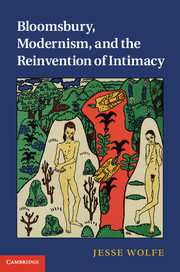Book contents
2 - Freud's denial of innocence
from PART I - PHILOSOPHICAL BACKGROUNDS
Published online by Cambridge University Press: 05 December 2011
Summary
The early-twentieth century's reinvention of intimacy tested the skills of theorists and storytellers – from Freud and G. E. Moore to D. H. Lawrence, Virginia Woolf, and others – as cultural diagnosticians. In England, on the continent, and across the Atlantic, thinkers probed the psychological question What are children, men, and women like? and the ethical question How should we conduct our intimate lives, within and between families? Modernist authors designed state-of-the-art instruments for examining consciousness and the unconscious. More fully than anywhere, Freud displays his own modernist skills in Dora, where his cagey depictions of the protagonist (Dora) and antagonist (himself) help him to develop his anti-essentialist answers to the theoretical question above, and his accommodationist answers to the ethical question. In the following pages we will see how subsequent Freudian texts play variations on these answers, and how the tensions between Freud's theoretical radicalism and ethical conservatism anticipate the tensions in Bloomsburian novels. We will also see how the absence of the category “adolescent” (developed early in the twentieth century by G. Stanley Hall) limits Freud's options in theoretically imagining Dora, and thus also his options for advising her about how to navigate the challenges of her intimate life – although Freud gropes his way, at various points in Dora, toward something like Hall's idea.
Freud the theorist vs. Freud the therapist
The locus of Dora's anti-essentialist themes is Dora herself.
- Type
- Chapter
- Information
- Bloomsbury, Modernism, and the Reinvention of Intimacy , pp. 51 - 76Publisher: Cambridge University PressPrint publication year: 2011



